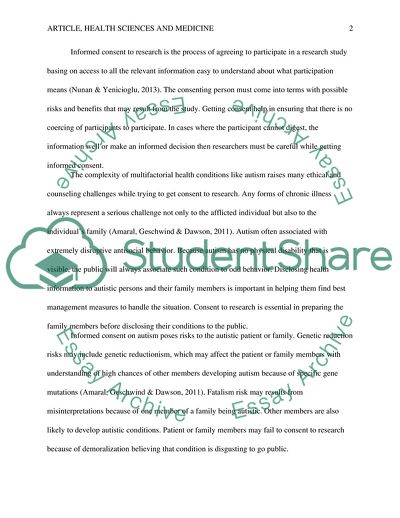Cite this document
(Informed consent processes in clinical and research contexts with Article, n.d.)
Informed consent processes in clinical and research contexts with Article. https://studentshare.org/medical-science/1836883-autism-spectrum-disorder-patient
Informed consent processes in clinical and research contexts with Article. https://studentshare.org/medical-science/1836883-autism-spectrum-disorder-patient
(Informed Consent Processes in Clinical and Research Contexts With Article)
Informed Consent Processes in Clinical and Research Contexts With Article. https://studentshare.org/medical-science/1836883-autism-spectrum-disorder-patient.
Informed Consent Processes in Clinical and Research Contexts With Article. https://studentshare.org/medical-science/1836883-autism-spectrum-disorder-patient.
“Informed Consent Processes in Clinical and Research Contexts With Article”. https://studentshare.org/medical-science/1836883-autism-spectrum-disorder-patient.


